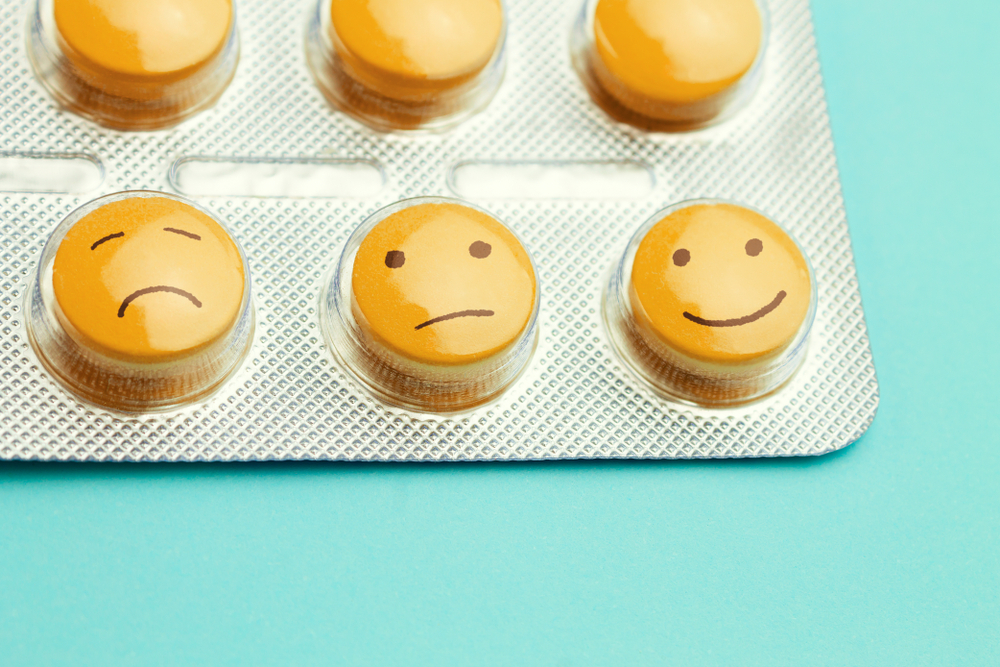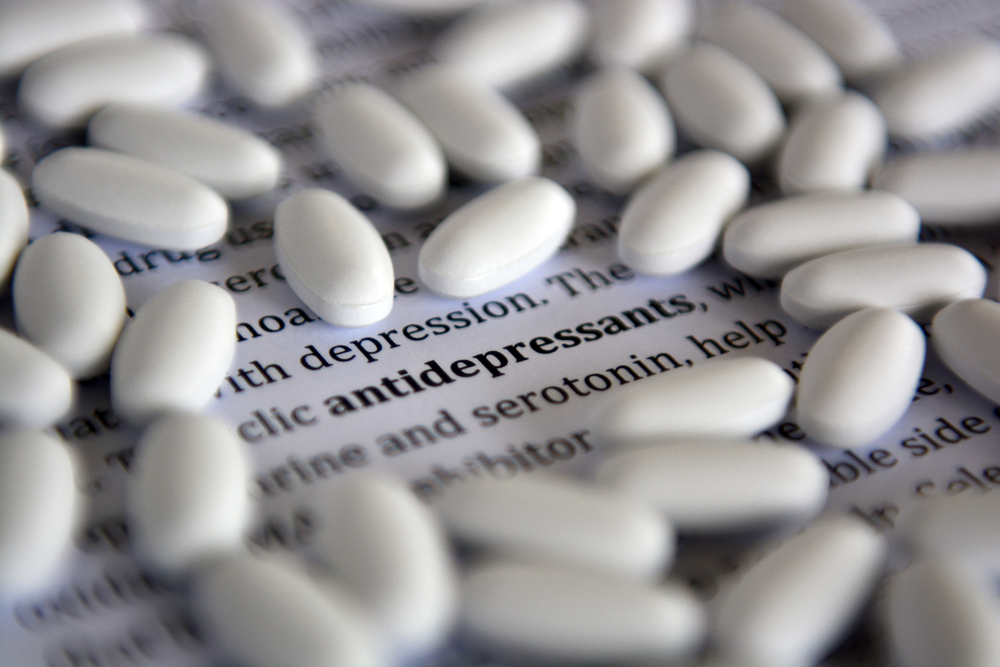
There are many reasons for young people to be anxious and depressed today: disruption to life caused by the pandemic; difficult circumstances in which to look for work; the social pressures of ubiquitous social media and competition seeping into every aspect of life.
Prescribing antidepressants for youth mental health problems is widespread and growing: in 2017-2018 more than 10% of people aged 18-24 received at least one script for an antidepressant (Public Health England, 2019), with about 2% of 13 to 17 year olds in England receiving at least one antidepressant in 2016/2017 (NHS Digital, 2018).
The Lancet Psychiatry has published a review as part of its ‘Active Ingredients for Addressing Youth Anxiety and Depression’ on the topic of SSRI (selective serotonin reuptake inhibitors) antidepressants. The review aims to outline what is known about SSRIs in young people (aged 14–24 years) and what the gaps in knowledge are. Obsessive compulsive disorder, acute stress disorder, and post-traumatic stress disorder are outside of the scope of this review.

In England in 2017-2018 more than 10% of people aged 18-24 received at least one prescription for an antidepressant (Public Health England, 2019).
Methods
This reviewers searched MEDLINE, PsycINFO, Cochrane Database of Systematic Reviews, and Web of Science (Core Collection) for human and animal (preclinical animal models) studies published from Jan 1, 2000, to July 6, 2020. They included papers published in English.
Two people independently reviewed titles and abstracts that were identified through the search strategy to decide whether studies were of relevance to the objectives of the Series paper and recorded a justification for each excluded study. A third reviewer resolved disagreements.
“The selected manuscripts were read in full and further assessed for relevance to the Series paper. Further focused searches on PubMed were done for selected topics. Given the many references that were identified by these searches, this Series paper provides representative rather than complete citations.”
The reviewers aimed to outline the evidence for the benefits, harms and mechanism of action of SSRIs in young people with reference to the outcomes of a workshop they conducted with a Young Person Advisory Group.
Results
The authors outline what they see as the current consensus on harms and benefits of SSRIs in treating anxiety and depression amongst young people, and the major gaps in our understanding from their point of view.
Efficacy
The authors argue that network meta-analyses of randomised controlled trials (RCTs) that find most antidepressants are ineffective in depression and anxiety in young people (Cipriani et al., 2016; Dobson, Bloch and Strawn, 2019) were hampered by “a large number of poor-quality studies” conducted by drug companies that produced a “high” response rate for placebo. They note that this analysis found statistically significant effects only for fluoxetine in both conditions (and sertraline and fluvoxamine in anxiety) in studies that ranged from 6-12 weeks in duration.
Instead they focus attention on the TADS study that found a higher response rate for fluoxetine compared to placebo after 12 weeks, although there was no difference on the primary outcome (Jureidini, Tonkin and Mansfield, 2004; March et al., 2004).
They also highlight an exploratory analysis from a recent study of the addition of fluoxetine to CBT in young people with depression, which showed improved depression and anxiety scores in those over the age of 18 with combination treatment compared to CBT alone, although the main analysis found no overall difference in depression scores in young people (Davey et al., 2019).
The authors of the review conclude that “SSRIs are a reasonably effective treatment for depression and anxiety in young people” and “that combination of SSRIs with CBT can be more effective than either treatment modality alone.”
Harms
The authors outline the increased risk of weight gain, reduced growth, reduced bone-mass density and an increase in the risk of diabetes with antidepressant use in young people.
They highlight the fact that antidepressants cause an activation syndrome in 11-14% of young people consisting of “irritability, agitation, impulsivity, emotional lability, hostility, restlessness and aggression.”
They mention concerns around the effect of antidepressants in the long term on “brain development, physical growth and sexual function and fertility.”
They address the issue of increased suicidal thoughts and attempts in young people on antidepressants compared to placebo in randomised controlled trials which led to the FDA putting “black box” warnings on antidepressants. They query the methodology behind some of the meta-analyses that have suggested this association and outline one meta-analysis that reports more equivocal findings: that paroxetine and venlafaxine increase suicidality in young people but that sertraline decreases the risk. However, they conclude that “the available studies suggest that some people can experience an increase in suicidal thinking and behaviour during SSRI treatment.”
The authors also speculate on how antidepressants might act on putative biological abnormalities that the authors suggest may underpin the experience of depression; including effects on serotonin, brain circuitry, and affective processing and how this might interact with the environment around them.

The Young Person Advisory Group set up for this project identified a number of questions about SSRI treatment in young people, including the long-term effects of antidepressant use on brain function, fertility, and growth.
Limitations
In putting forward their summary of the field, the authors skip over several issues that could have influenced their conclusions.
Efficacy
The authors work from the assumption that “medication is a necessary tool for clinicians treating young people” and adverse effects are largely considered as a “barrier to antidepressant use”. The assumption of usefulness is too hasty as there is much uncertainty about whether antidepressants have benefits – let alone net benefits – in young people.
The article justifies focusing on a single study (TADS) because of the view that early trials conducted by drug manufacturers inflated the response rate of placebo. It is difficult to believe that drug companies would design trials that would do this, and no plausible explanation is given as to how it might have occurred. One opinion piece cited argues that these industry studies recruited less unwell participants (Walkup, 2017) but baseline Children’s Depression Rating Scale (CDRS-R) scores for these industry studies are all around 60 (the severe range), as they are for the TADS study (Hetrick et al., 2021).
The TADS trial that is prioritised in this review found no difference between placebo and fluoxetine on the primary end point, the CDRS-R (p=0.10) (Jureidini, Tonkin and Mansfield, 2004). Focusing on response rates as the authors of the original trial and the current review do, is recognised to inflate small differences between two groups, as present in this study (Kirsch and Moncrieff, 2007).
Since this paper was written the most up-to-date and comprehensive network meta-analysis of antidepressants in young people (6-18 year olds) with depression has been conducted by the Cochrane Collaboration, which clearly highlights the uncertainties in this area (Hetrick et al., 2021). The Cochrane review used an objective set of measures to assess quality, risk of bias and certainty of the evidence provided by all existing trials of new generation antidepressants in young people (26 trials, 5750 participants). It was blogged on The Mental Elf by Susannah Murphy, who is also the first author of this new review in The Lancet Psychiatry.
The Cochrane review concluded that there was evidence that SSRIs had “small unimportant differences” from placebo on depressive symptoms (“high certainty”) “which raises the question of whether they should be used at all (Hetrick et al., 2021) (italics added).”
The Cochrane review also pointed out a number of limitations in these studies:
- Selective reporting: authors of these studies switched the primary outcomes specified in their methods or protocols, famously including Study 329 which changed the definition of relapse after 8 primary and secondary outcomes failed to show a difference between paroxetine and placebo
- Inconsistent reporting: results from the TADS 2004 study have been reported in multiple papers with contradictory results
- Funding: most trials were conducted by drug companies. The TADS 2004 trial was funded by an NIMH contract but also had an “unrestricted educational grant from Eli Lilly”.
There are also a number of limitations to antidepressant trials in adults (Munkholm, Paludan-Müller and Boesen, 2019), that are relevant to trials in young people, that were not addressed by the current review:
- Unblinding of participants because of noticeable effects of the drug
- The inclusion of people who are already taking antidepressants, with the consequence that people randomised to placebo are likely to experience withdrawal effects that may be mistaken for symptoms of depression or anxiety
- The clinically uninformative duration of these studies; most studies go for 6-12 weeks, whilst patients are treated for many months or years
- The unclear clinical relevance of depression scores to people’s functioning and quality of life (this issue was considered by the current review in their conclusion).
Some authors have argued that although there are small and unimportant differences overall between placebo and antidepressants, there may be a sub-group of people who show greater responses, possibly those with more severe baseline depression. However, three recent studies (in people aged >18) have found this not to be consistent with the data (Guo et al., 2020; Maslej et al., 2021; Volkmann, Volkmann, & Müller, 2020), with one concluding that “antidepressants show a relatively uniform effect”. A recent individual patient meta-analysis in adults with depression found that there was no difference in response based on baseline severity (Furukawa et al., 2018).

The best available evidence we currently have suggests that antidepressants are not very effective at treating depression in young people.
Harms
This is a particularly important topic given that young people are more susceptible to drug side effects generally and to the potential brain modifying effects of drugs given the plasticity of their brains. While the authors mention this topic briefly, they spend more of the article speculating on the possible ways in which antidepressants might reverse hypothetical but unsubstantiated brain abnormalities, and neglect to consider that the brain alterations induced by antidepressants may be harmful rather than beneficial.
There are also a number of harms that were either prematurely dismissed or downplayed.
Withdrawal effects
Withdrawal effects were downplayed in The Lancet Psychiatry review, which noted that fluoxetine is the SSRI least likely to cause withdrawal symptoms, but did not explore the possibility that some young people may experience prolonged and severe withdrawal effects, or may not be able to stop these medications because of aversive effects.
Moreover, fluoxetine is not the only drug used in this group of patients and, despite its reputation, fluoxetine has been associated with a high incidence of withdrawal effects (77% in one double-blind randomised discontinuation study), although these are often delayed because of fluoxetine’s long half-life and therefore easily mis-diagnosed (Hindmarch, Kimber and Cockle, 2000).
Sexual side effects
Sexual side effects were mentioned briefly in the paper, and were a focus of concern by the young people interviewed for the current review. The short-term effects of antidepressants on sexual function in adults were discussed (erectile dysfunction, anorgasmia and decreased libido). However, the more concerning long-term effects of antidepressants on sexual function; the condition of post-SSRI sexual dysfunction (PSSD) which can persist even after stopping antidepressants and may be permanent in some people, as now recognised by the European Medicines Agency, was not addressed (Reisman, 2020).
Suicidal behaviour
The authors of the opinion piece recognise that some young people experience an increase in suicidal thoughts and behaviour during SSRI treatment, but they question the reliability of the evidence and neglect to mention a comprehensive meta-analysis of clinical study reports (the raw data from studies) from RCTs which found an increase in the odds ratio for suicidality for young people of 2.39 (95% CI 1.31 to 4.33), along with an increase in aggression (OR 2.79, 95% CI 1.62 to 4.81) (Sharma et al., 2016). They also refer to the idea that antidepressants reduce suicides by decreasing depression, even though this is based on flawed ecological studies and not supported by more robust evidence from randomised controlled trials.
The recent Cochrane review provides an up to date summary of this area (Hetrick et al., 2021). This review reported on a range of “low certainty” evidence finding that:
- There may be “at least a small increase” in odds of suicide-related outcomes compared with placebo for SSRIs as a group (OR 1.30, 95% 1.04 to 1.63, “low certainty”).
- Fluoxetine, paroxetine, sertraline and venlafaxine may “at least slightly” increases odds of suicide-related outcomes compared with placebo (“low certainty”).
- That escitalopram may “at least slightly” reduce suicide-related outcomes (“low certainty”).

Antidepressants have side-effects and withdrawal-effects, and the severity of these is still hotly debated.
Conclusions
We agree with the authors of this review that we need to understand more about how SSRIs affect young people’s brains, especially in the long-term in order to better inform patients and their families about the effects of these medications.
However, it seems premature to prioritise study of the mechanism of action or predictors of effect before we establish that the benefits of these drugs outweigh their harms. It is incautious to conclude that these drugs are “necessary” based on secondary outcomes from one or two trials, when an overall appraisal of trial evidence finds minor differences from placebo that fail to reach clinical relevance. We must also weigh up these small differences against the harms of this treatment: effects on height, weight, bone development, and diabetes; difficulty stopping these drugs and potentially long-lasting withdrawal effects; potentially long-lasting effects on sexual function and the possibility that these drugs might increase agitation and suicidality in some young people.
Given there exists a number of alternative treatments such as watchful waiting, exercise and psychotherapy (Jureidini, 2016), surely the most important question to ask is the one raised by the Cochrane authors: should antidepressants be used at all in young people?

The most important question to ask is, should antidepressants be used at all in young people?
Implications for practice
The Wellcome Trust initiative on “Active Ingredients” for youth anxiety and depression offers a wide array of promising avenues for helping young people by:
- Addressing unmet needs such as financial security, social connectedness, a sense of meaning;
- Enhancing psychological skills such as self-compassion, problem solving and emotional regulation;
- Reducing aversive habits such as avoidance, and perfectionism; and
- Encouraging positive behaviours like stable sleep-wake cycles and engagement in rewarding activities.
In addition to these useful individually-targeted interventions, society-wide changes to lessen social deprivation, job insecurity, and other intersectional barriers to fulfilling and happy lives, as well as more local social interventions around issues such as bullying, racism, sexism, gender and sexuality issues, and drug use would help to address young people’s anxiety and depression.
Against these other potential avenues, we should examine whether the relative benefits and harms of antidepressants stack up well.

The Wellcome Trust Active Ingredients initiative has highlighted a wide array of promising avenues to help young people with anxiety or depression. This work, which brings together the mental health science community, will continue over the coming years to forge a common research agenda around active ingredients. Image credit: Ellice Weaver / Wellcome.
Statement of interest
MH reports no conflicts of interest.
JM reports grants from the National Institute of Health Research unrelated to the current topic. She is co-chairperson of the Critical Psychiatry Network (an informal group of psychiatrists) and a board member of the unfunded organisation, the Council for Evidence-based Psychiatry. Both are unpaid positions.
#ElfNuggets
This blog was discussed by Emmeline Lagunes-Cordoba in the October 2021 Elf Nuggets show, which you can watch here:
Links
Primary paper
Murphy SE, Capitão LP, Giles SLC, Cowen PJ, Stringaris A, Harmer CJ. (2021) Active Ingredients for Addressing Youth Anxiety and Depression 2: The knowns and unknowns of SSRI treatment in young people with depression and anxiety: efficacy, predictors, and mechanisms of action. The Lancet Psychiatry 2021; 8: 824–35. https://doi.org/10.1016/S2215-0366(21)00154-1
Other references
Cipriani, A. et al. (2016) ‘Comparative efficacy and tolerability of antidepressants for major depressive disorder in children and adolescents: a network meta-analysis.’, Lancet (London, England). England, 388(10047), pp. 881–890. doi: 10.1016/S0140-6736(16)30385-3.
Davey, C. G. et al. (2019) ‘The addition of fluoxetine to cognitive behavioural therapy for youth depression (YoDA-C): a randomised, double-blind, placebo-controlled, multicentre clinical trial.’, The lancet. Psychiatry. England, 6(9), pp. 735–744. doi: 10.1016/S2215-0366(19)30215-9.
Dobson, E. T., Bloch, M. H. and Strawn, J. R. (2019) ‘Efficacy and Tolerability of Pharmacotherapy for Pediatric Anxiety Disorders: A Network Meta-Analysis.’, The Journal of clinical psychiatry. United States, 80(1). doi: 10.4088/JCP.17r12064.
Furukawa, T. A., Maruo, K., Noma, H., Tanaka, S., Imai, H., Shinohara, K., … Cipriani, A. (2018). Initial severity of major depression and efficacy of new generation antidepressants: individual participant data meta-analysis. Acta Psychiatrica Scandinavica, 137(6), 450–458. https://doi.org/https://doi.org/10.1111/acps.12886
Guo, X., McCutcheon, R. A., Pillinger, T., Mizuno, Y., Natesan, S., Brown, K., & Howes, O. (2020). The magnitude and heterogeneity of antidepressant response in depression: A meta-analysis of over 45,000 patients. Journal of Affective Disorders, 276, 991–1000. https://doi.org/https://doi.org/10.1016/j.jad.2020.07.102
Hetrick SE, McKenzie JE, Bailey AP, Sharma V, Moller CI, Badcock PB, Cox GR, Merry SN, Meader N. (2021) New generation antidepressants for depression in children and adolescents: a network meta‐analysis. Cochrane Database of Systematic Reviews 2021, Issue 5. Art. No.: CD013674. DOI: 10.1002/14651858.CD013674.pub2.
Hindmarch, I., Kimber, S. and Cockle, S. M. (2000) ‘Abrupt and brief discontinuation of antidepressant treatment: Effects on cognitive function and psychomotor performance’, International Clinical Psychopharmacology, 15(6), pp. 305–318. doi: 10.1097/00004850-200015060-00001.
Jureidini, J. (2016) ‘Antidepressants fail, but no cause for therapeutic gloom’, The Lancet, 388(10047), pp. 844–845. doi: https://doi.org/10.1016/S0140-6736(16)30585-2
Jureidini, J., Tonkin, A. and Mansfield, P. R. (2004) ‘TADS study raises concerns’, BMJ : British Medical Journal. BMJ Publishing Group Ltd., 329(7478), pp. 1343–1344.
Kirsch, I. and Moncrieff, J. (2007) ‘Clinical trials and the response rate illusion’, Contemporary Clinical Trials, 28(4), pp. 348–351. doi: https://doi.org/10.1016/j.cct.2006.10.012
March, J. et al. (2004) ‘Fluoxetine, cognitive-behavioral therapy, and their combination for adolescents with depression: Treatment for Adolescents With Depression Study (TADS) randomized controlled trial.’, JAMA. United States, 292(7), pp. 807–820. doi: 10.1001/jama.292.7.807.
Maslej, M. M., Furukawa, T. A., Cipriani, A., Andrews, P. W., Sanches, M., Tomlinson, A., … Mulsant, B. H. (2021). Individual Differences in Response to Antidepressants: A Meta-analysis of Placebo-Controlled Randomized Clinical Trials. JAMA Psychiatry, 78(5), 490–497. https://doi.org/10.1001/jamapsychiatry.2020.4564
Munkholm, K., Paludan-Müller, A. S. and Boesen, K. (2019) ‘Considering the methodological limitations in the evidence base of antidepressants for depression: a reanalysis of a network meta-analysis’, BMJ Open, 9(6), p. e024886. doi: 10.1136/bmjopen-2018-024886.
NHS Digital (2018) The number of antidepressant items and patients receiving them (prescribed in England and dispensed in the community) Years ending 31 March 2016 and 31 March 2017 (Download Excel spreadsheet). (Accessed: 11 August 2021).
Public Health England (2019) Dependence and withdrawal associated with some prescribed medicines. An evidence review. (Accessed: 30 March 2021).
Reisman, Y. (2020) ‘Post-SSRI sexual dysfunction’, BMJ. BMJ Publishing Group Ltd, 368. doi: 10.1136/bmj.m754.
Sharma, T. et al. (2016) ‘Suicidality and aggression during antidepressant treatment: systematic review and meta-analyses based on clinical study reports’, BMJ, 352.
Volkmann, C., Volkmann, A., & Müller, C. A. (2020). On the treatment effect heterogeneity of antidepressants in major depression: A Bayesian meta-analysis and simulation study. PLOS ONE, 15(11), e0241497. Retrieved from https://doi.org/10.1371/journal.pone.0241497
Walkup, J. T. (2017) ‘Antidepressant Efficacy for Depression in Children and Adolescents: Industry- and NIMH-Funded Studies’, American Journal of Psychiatry. American Psychiatric Publishing, 174(5), pp. 430–437. doi: 10.1176/appi.ajp.2017.16091059.
Photo credits
- Photo by Tim Mossholder on Unsplash
- Ellice Weaver / Wellcome, Licence: All Rights Reserved
